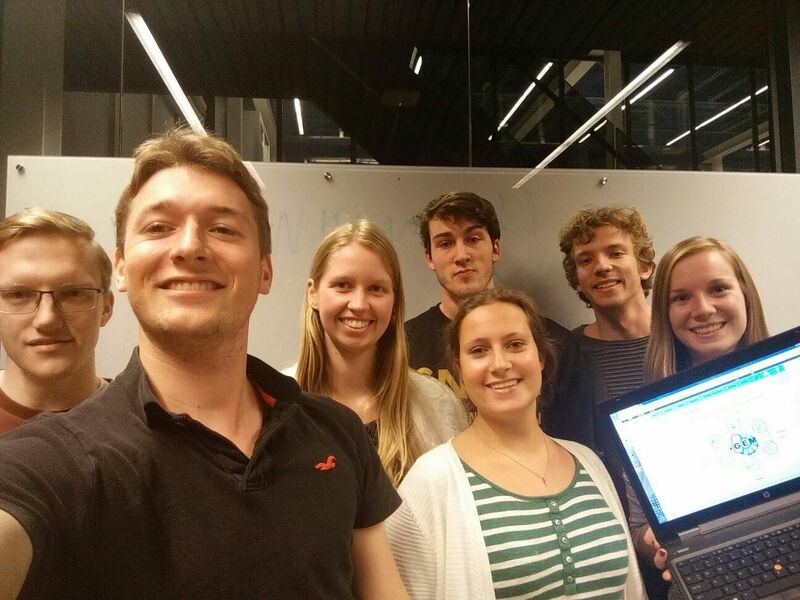
- Student
- 09/11/2017
TU/e's iGEM team makes tumor gel
Eindhoven's iGEM team has arrived in Boston. In the coming days, the students will participate in the Giant Jamboree, competing with nearly three hundred teams from all over the world. Their competition entry is their project GUPPI, in which they propose encapsulating tumors in a gel to prevent them growing and spreading.
In developing Gelation Using Protein-Protein Interactions (GUPPI) the team has drawn inspiration from the recent discovery of what are called membraneless organelles, says team member Marle Vleugels, speaking from Boston. Organelles - the organs of the cell, as it were - are normally separated from the rest of the cell by a membrane, she explains, but there are some organelles that have no surrounding membrane.
“These membraneless organelles are formed by proteins that cluster together, as they do in the gel we have designed. We are using what are known as 14-3-3 proteins, which are the subject of a great deal of research in our supervisor Luc Brunsveld's group. We have adapted them so that they have four sites at which they can bind to other molecules instead of the usual two. By adding the right binding partner at those sites, namely another protein that we ourselves have made, you can create a gel.”
Tumors
The aim is have this gel form only near the tumor site, using proteases - a type of enzyme secreted by the tumor - as a trigger for the formation of the gel. “So you could use this method to encapsulate cancer cells, thus preventing them from continuing to grow and from spreading.”
This may potentially lead to an entirely new way of combating cancer, explains Vleugels. “In contrast to existing therapies, which aim to prevent the formation of these proteases, our concept utilizes them.”
An actual therapy based on GUPPI is still a distant prospect, but the principle itself may help improve tumor imaging. “We visited an oncology surgeon at Eindhoven's Catharina Hospital who told us that it is very difficult to make tumors in the stomach wall visible. He could envisage an application for our gel because it also contains fluorescent proteins.”
Gold medal
From Friday through Sunday, the seven team members have the opportunity to explain their ideas in presentations and poster sessions, after which the team will find out whether GUPPI is in line for a nomination - or even a prize - in one of the many prize categories. In any event, the members of Eindhoven's iGEM team believe they satisfy the eligibility criteria for a gold medal. Last year, some 40 per cent of the participating teams competed for gold.
International Genetically Engineered Machine (iGEM) is a competition for student teams in which techniques in the field of synthetic biology are applied to solve a broad range of problems. The final, which takes the form of the Giant Jamboree event, is held every year in Boston.
Discussion